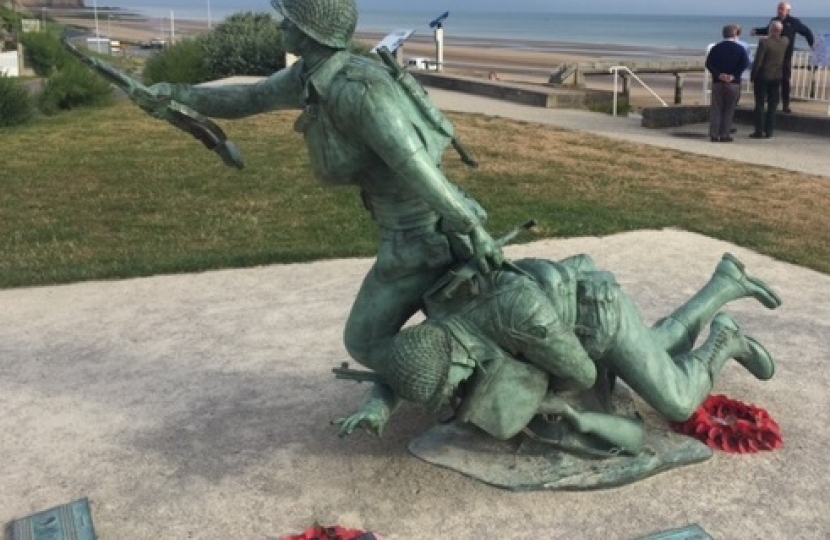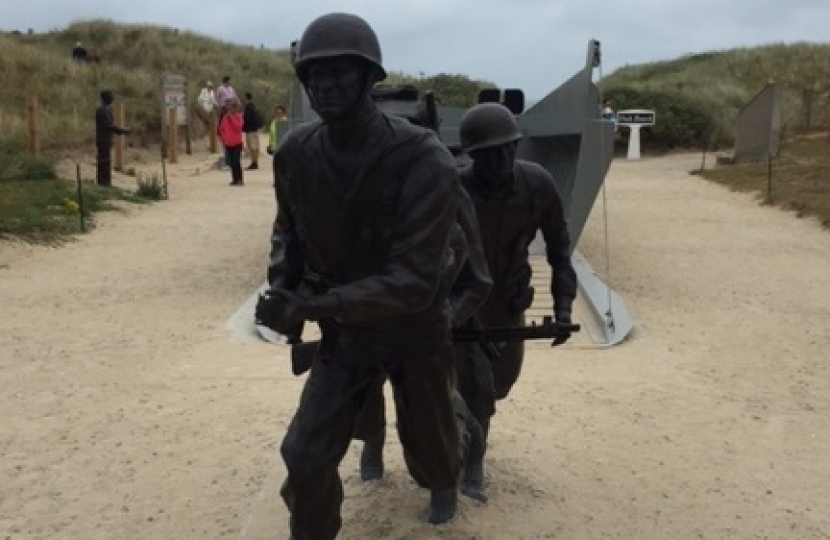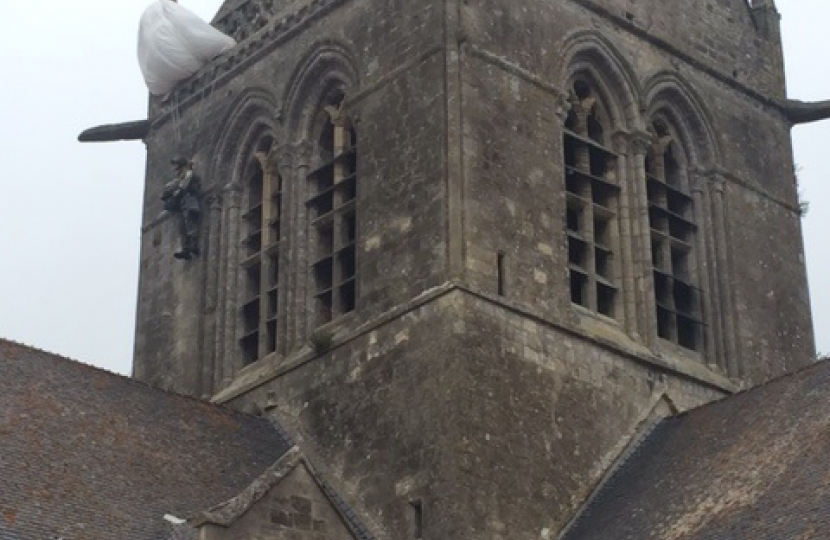Parliament may be in recess for the summer but the work does not stop. For as a member of the All Party Parliamentary Group for the Armed Forces, I spent three days this week touring the Normandy coast; understanding the events and the stories of UTAH, OMAHA, GOLD, JUNO and SWORD beaches, which make up the D-Day landings.
Arriving at the coast, you’d be forgiven for mistaking the French countryside with that of Suffolk and our own Eastern region. For it is hard to imagine this was a key battleground of the Second World War which took place 72 years before. The three years prior to Normandy, largely consisted of airstrikes and aerial warfare, and on 6th June 1944 when the landings commenced, air power was still a crucial factor, albeit of a different type. A story that captured the imagination was that of Major John Howard DSO who, with a small group of men was landed by glider and recaptured Pegasus Bridge, a strategic site that allowed the advance of the allied forces. The pilot navigated his way with only a map, a compass, a torch and tremendous skill and courage. This was the first ground offensive of the war.
Across the tour, we visited and were briefed at all five beaches which commemorate the landings with beautiful statues, graves and memorials. On average, 6,674 lives were lost every day for the 77 days of fighting at Normandy. Walking among the graves, many unmarked and belonging to soldiers no older than my own children, was a poignant experience. For me, it was especially moving to find the graves of two of President Roosevelt’s sons, one of whom died during the First World War and the second, Theodore, who was buried alongside his brother years later. Many American lives were lost protecting freedom in Europe. When we talk about the ‘special relationship’ between America and the UK, we remember these events, the sacrifices from both sides and our shared history. In this global world, with new and emerging threats to our safety, we must continue to band together.
This is why I believe it is important we all, not just decision makers, commemorate the events of the first and second world wars. Our tour included a visit to see the Bayeux Tapestry, depicting events leading up to the Norman conquest of England. It reminds us that history documents the developing and changing relationships between nation states. Our decision to leave the European Union means we face uncertainty and the present direct threat of terrorism upon Europe is why I believe, now more than ever, we must look to, and do all we can to, protect the common ground which unites us all.
For more information about how you can support UK War Memorials and your own local memorials, visit http://ukwarmemorials.org/
Published in the East Anglian Daily Times


